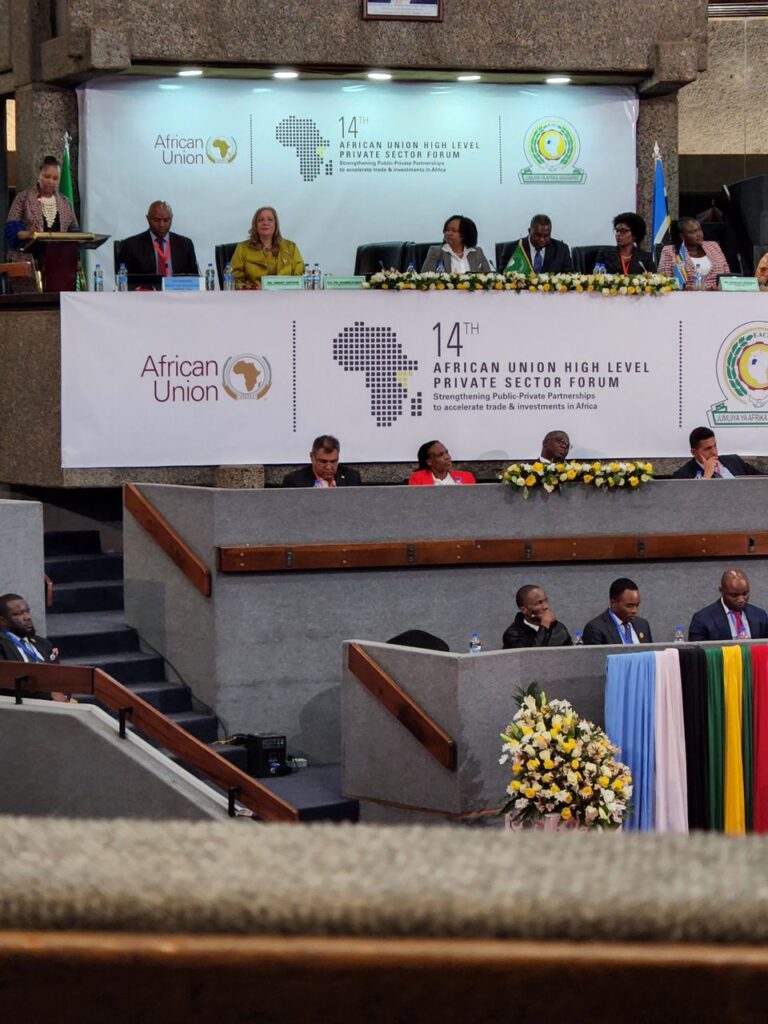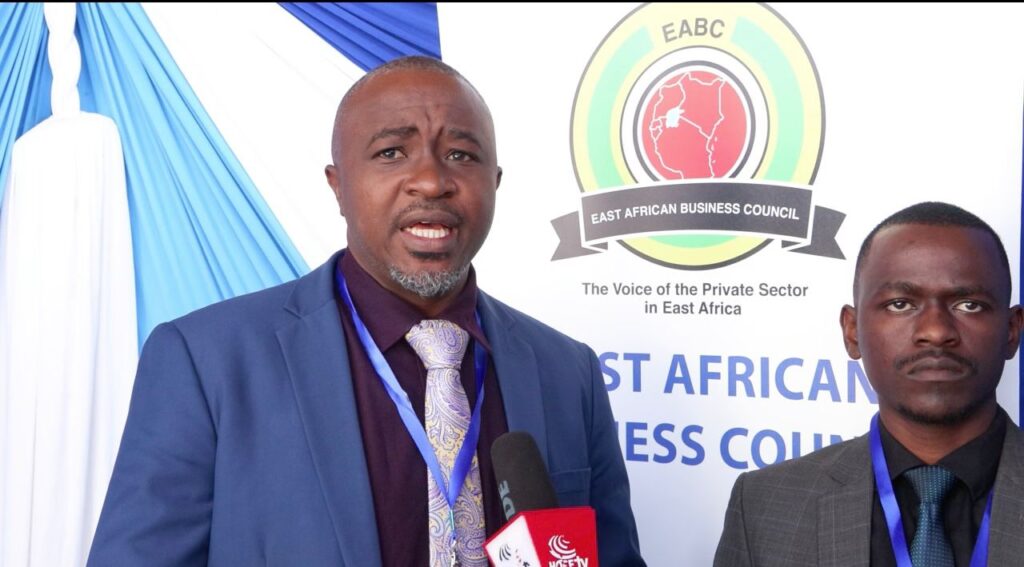Nairobi, Kenya – The 14th African Union High-Level Private Sector Forum was held Nairobi with emphasis on the significance of policy harmonization to enable the free flow of goods and services across borders.
Participants stressed the need to streamline regulations and procedures to facilitate trade and prioritize expansion of value chains in Africa.
The forum, convened by the African Union Commission in collaboration with the East African Community Secretariat, brought together a diverse array of stakeholders to discuss strategies for inclusive growth, sustainable development, and enhanced trade and investment across the continent.
The forum aimed at strengthening linkages between regional and continental markets with a focus on fostering increased trade and investment.
The participants who included high-level public policy makers, private sector actors, financial institutions, representatives of women and youth-led/owned creative start-ups, as well as academia and research institutions, engaged in comprehensive discussions to ensure a broad representation of perspectives.
During the event, Deputy Secretary General of the African Union Commission, Ms. Annette Ssemuwemba, highlighted the importance of stimulating economic growth beyond the natural resources sector.

She emphasized the implementation of an industrialization policy within the East African Community (EAC) that focuses on diversifying the manufacturing sector, promoting higher value addition, and supporting SMEs.
Ms. Ssemuwemba also stressed the need for a unique approach to industrialization in Africa to fully benefit from the market opportunities presented by the African Continental Free Trade Area (AfCFTA).
Simon Kaheru, a Board member of the Uganda Manufacturers Association (UMA) and the East African Business Council (EABC), emphasized the benefits of regional integration to tap into a larger market.

However, he highlighted the challenges of high financing costs and logistics to access wider markets.
Also in attendance, Mr. Jim Kabeho, UMA Board Member, emphasized the need to accelerate integration through the AfCFTA to address barriers to trade within Africa.
He called for collaborative efforts to facilitate smoother trade processes and enhance economic cooperation among African nations.
The UMA Executive Director, Dr. Ezra Rubanda, provided insights into the key issues discussed during the forum.
He stressed the importance of governments’ prioritization of key agenda aligned with the needs of the private sector.

“By creating an enabling environment, governments can support the growth and success of businesses,” said Rubanda, adding that participants recognized the pivotal role of logistics and infrastructure in boosting trade.
He deemed as essential the investment in robust transportation networks, including roads, railway, ports, and airports, was essential to facilitate the efficient movement of goods across the continent.
“By promoting intra-African cooperation, businesses can leverage shared resources and expertise, leading to increased productivity and competitiveness globally,” Rubanda said.
Participants also highlighted the importance of exploring untapped markets, embracing emerging technologies, and promoting innovation to unlock the full potential of regional and continental trade.
Participants also expressed their commitment to implementing the recommendations and collaboratively working towards achieving the shared vision of inclusive growth, sustainable development, and increased trade and investment across Africa.









